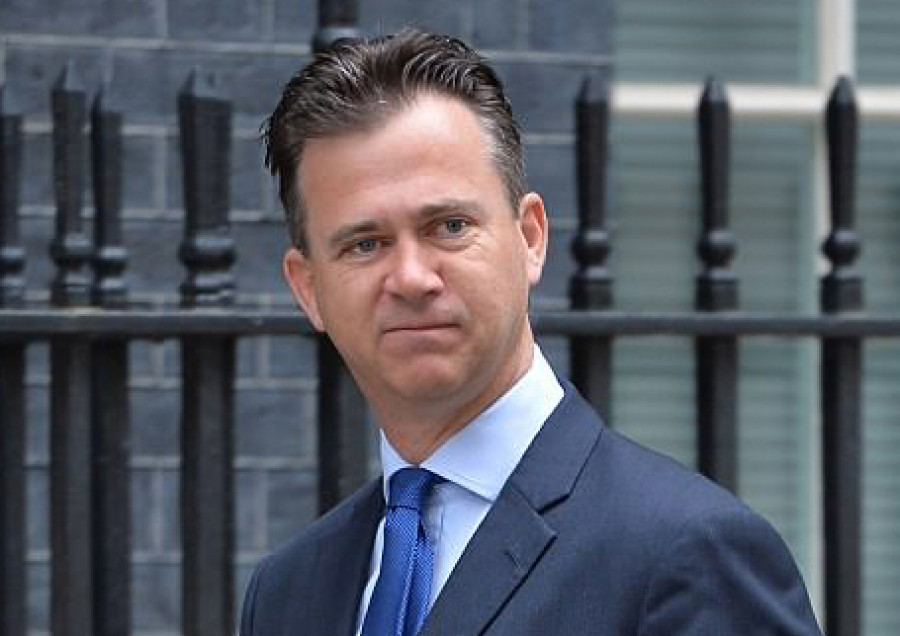Valley
British minister arriving to discuss Gurkhas’ demands
British Minister of State for the Armed Forces Mark Lancaster is arriving to Kathmandu on Wednesday for a four-day visit to address the decade-long demands put forth by the Gurkha Army Ex-Servicemen who served in the British Army.
Anil Giri
British Minister of State for the Armed Forces Mark Lancaster is arriving to Kathmandu on Wednesday for a four-day visit to address the decade-long demands put forth by the Gurkha Army Ex-Servicemen who served in the British Army. Lancaster will be holding talks with senior Nepali officials.
The British minister is scheduled to meet President Bidya Devi Bhandari, Prime Minister KP Sharma Oli, Deputy Prime Minister and Minister for Defence Ishwor Pokhrel, Foreign Minister Pradeep Gyawali, among others.
Nepalis have been serving in the British Army since 1816. The British government started providing similar pay and pension to the Nepali Gurkhas serving in the British Army after October 1, 1993. But those recruited before October 1, 1993, and retired before July 1, 2007, were not paid equal pension pay and pension.
During his stay, Lancaster will be discussing a report—prepared by the Nepal and British governments and
agitating ex-Gurkhas—which was submitted to both the
governments on March 2, 2018, in London. The report highlights the British government’s decisions in not providing equal pay and pension to serving and retired Gurkhas.
The report emphasises providing equal pay, benefits, medical and other facilities to servicemen killed or injured in war and their widows. On March 20, 2017, the British government had agreed to form a panel to study the demands of retired Gurkha army personnel. The panel submitted its report to the governments of Nepal and Britain on March 22, 2018.
“The report says there is discrimination against Gurkha soldiers in the British Army. Furthermore, the report states that Gurkhas soldiers, either serving in British Army or retired from the force, are facing unequal pay, pension facilities and perks,” said S B Ghising, General Secretary of Former Gurkhas Joint Satyagraha Struggle Committee.
After receiving the report, British Minister of State for the Armed Forces Colonel John Mark Lancaster had said a talk team would be formed within a month.
Then Foreign Minister Shankar Das Bairagi also visited London and raised the issue with British officials.
Recently the Nepali Ambassador to United Kingdom Durga Bahadur Subedi Chettri also held discussions with the agitating Gurkha community in London and communicated them to accept 11 to 31 percent in pension.
Ambassador Subedi Chettri also told the agitating group that to make pay, perks, pension and facilities equal to the British nationals serving in the British Army at one go was impossible. The increment would be done slowly and will be fully addressed in four years.
“We are struggling since 27 years. In these years we staged various protests in London and Kathmandu, including a fast-unto-death also. At that time our numbers were 25,000. Now, our numbers have reached 13,000, as many of the ex-Gurkhas have died. If it is true that this will take more time, then many of our friends will not see their full pension in their lifetime,” he said.
If the demands are met, Nepal will receive Rs1,200 billion annually as pay, pension, health facilities, insurance and other benefits, said Ghising.
But we rejected the proposal tabled by our ambassador in London, said Ghising. “As per the tripartite agreement between then Nepal, India and British governments on November 9, 1947, equal facilities, pension, compensation and other perks must be given to Nepali servicemen in the British Army. We are not going to withdraw our demands.”
Recently, Foreign Secretary Bairagi also called a meeting with agitating ex-Gurkhas in Kathmandu but he did not assure them much.
The report was submitted to both the governments a year ago, but till date no efforts in forming a talk team has been made by both sides, Ghising said. He stressed the government of Nepal should take diplomatic initiatives to exert moral pressure on the United Kingdom. Minister Lancaster had visited Nepal February last year and assured that the British government was committed to resolving the grievances of ex-Gurkha servicemen. Prime Minister KP Sharma Oli had also raised the issue of discriminatory pay and pensions of serving- and former-Gurkha soldiers with British Prime Minister Theresa May on the sidelines of the 73rd United Nations General Assembly in New York in September last year.




 22.12°C Kathmandu
22.12°C Kathmandu













